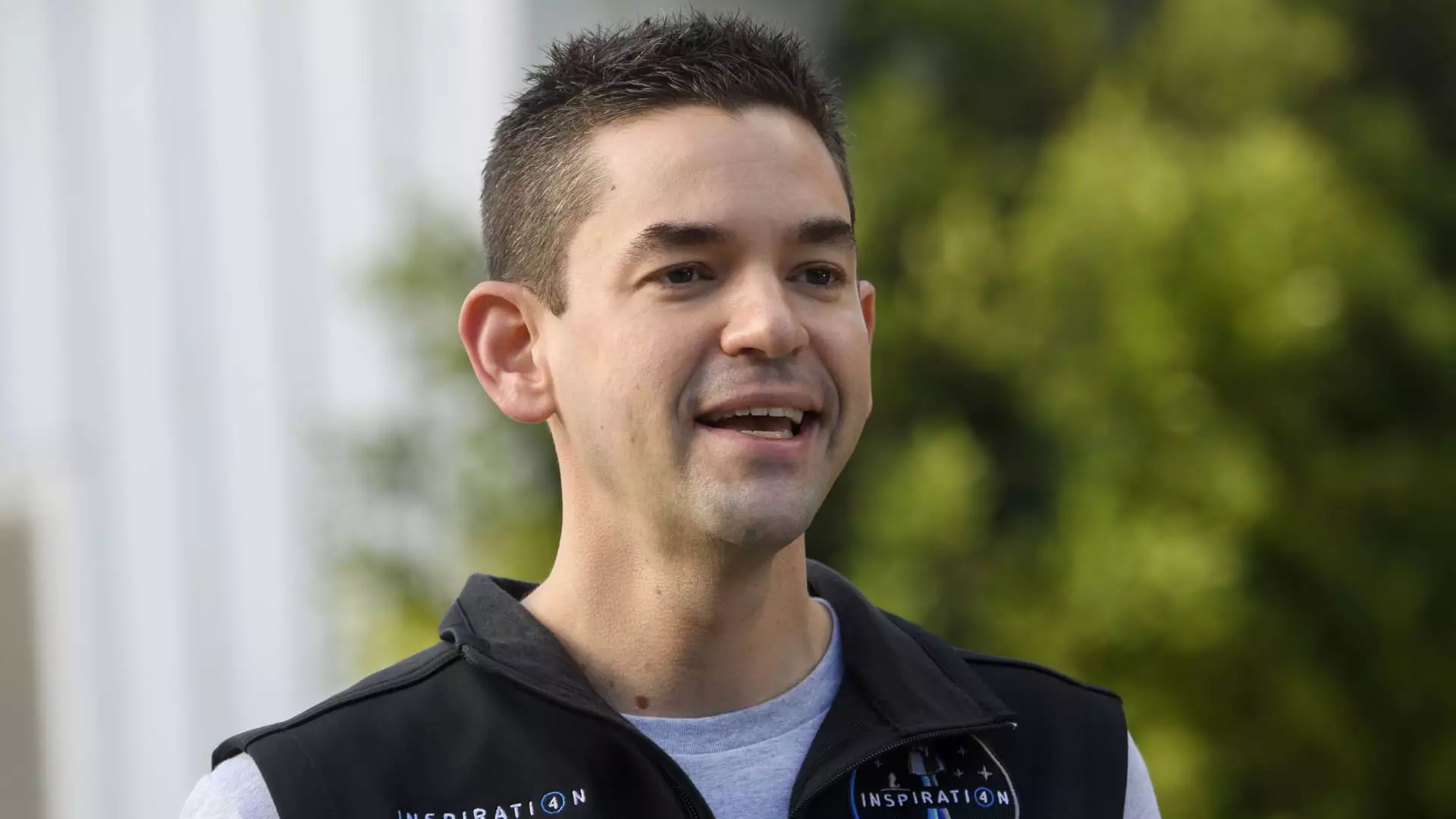Jared Isaacman’s brief venture into the world of politics was both adventurous and fraught with peril. The decision to nominate him for a NASA position by former President Donald Trump seemed promising at first, as it symbolized a blend of entrepreneurship and innovation that the space agency desperately needs. However, just days after Trump’s announcement, the nomination was swiftly retracted, marking a jarring end to what many hoped would be a fruitful partnership. This turn of events unveils the harsh realities of political endorsements and the unforgiving nature of public scrutiny, especially for those venturing from the private sector.
Isaacman’s experience in the corporate world hardly prepared him for the ruthless mechanisms of political maneuvering. Describing his short-lived political endeavor as a “thrilling experience” may sound heroic, but it belies the underlying fragility of his nomination. Trump’s sudden withdrawal hinted at deeper complexities within the administration’s decision-making process, particularly concerning past associations and donations — issues that anyone entering the political arena should anticipate and prepare for.
The Weight of Associations
Isaacman’s past financial contributions to Democratic candidates reportedly raised red flags, a crucial misstep in a political landscape increasingly defined by ideological purity. The irony lies in his self-identification as a “right-leaning” individual, which only amplifies the dissonance when his political affiliations became fodder for polarization. In an age where political loyalty is paramount, an entrepreneur with ties to both sides of the aisle can easily find himself alienated—an unfortunate reality that Isaacman learned too late.
Despite claiming that previous donations were common knowledge and publicly accessible prior to his nomination, this did not buffer him against scrutiny. The political elite, particularly within Trump’s circle, thrive on loyalty and deviation from established norms can be a swift ticket out of favor. Isaacman’s assertion that he would embrace that risk “all over again” speaks volumes about his character and ambition, but it also underscores a significant lack of foresight typical of someone inexperienced in political landscapes.
Complicated Ties to Elon Musk
Isaacman’s relationship with Elon Musk adds another layer of intrigue to this narrative. Their collaboration in pushing the envelope of space travel places Isaacman in a unique position—an opportunity he capitalized on through two private spaceflights. Yet, with Musk’s public hatchet job on Trump’s proposed legislation, the question arises: was Isaacman’s nomination part of a greater strategy to reel in the entrepreneurial and innovation-focused crowd, or merely a haphazard choice lost amid the chaos of Musk’s political distancing?
Musk’s criticisms of Trump’s initiatives, which he called “disgusting” and an invitation to “debt slavery,” highlight the schismatic nature of today’s political affiliations. For Isaacman, this growing rift has severe implications. His identification with Musk could have been a double-edged sword—providing a potential powerhouse of innovation while simultaneously entangling him in the fallout of Musk’s unapologetic political commentary.
The Fallout
The aftermath of Trump’s withdrawal speaks to the fragility of political aspirations for those outside traditional political frameworks. Isaacman’s relegation to executive chairman at Shift4 is perhaps a safe retreat, yet it carries the weight of a shattered ambition and lost opportunity. The timing of Trump’s decision, while ambiguous, reflects a cold calculus that could leave Isaacman questioning his future ambitions in government roles.
His resilience is commendable, but one must wonder whether this setback will haunt his ambitions or serve as a catalyst for deeper reflection and growth. The cutthroat nature of politics was not just a minor detour for Isaacman; it was a harsh lesson learned on a public stage fraught with expectations and consequences.
A Navigational Challenge Ahead
Moving forward, Isaacman’s path remains ripe for analysis. His comments regarding future endeavors are optimistic, but as observers, we must critically evaluate whether this “thrilling experience” was a valuable lesson or merely a foolish detour masked in bravado. The political landscape is a tumultuous sea of challenges, and navigating it requires not only courage but also a strategic mind that can deftly sidestep the landmines of ideological divisiveness.
The absence of a political safety net could very well leave Isaacman grappling with the questions of identity, integrity, and political viability. As he continues on his entrepreneurial journey, one can only hope he retains the lessons learned from this audacious political gamble, ensuring that future leaps into any arena are both bold and calculative.

